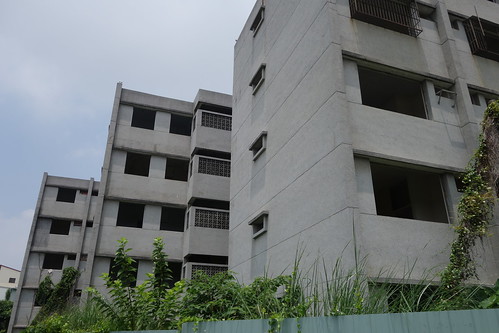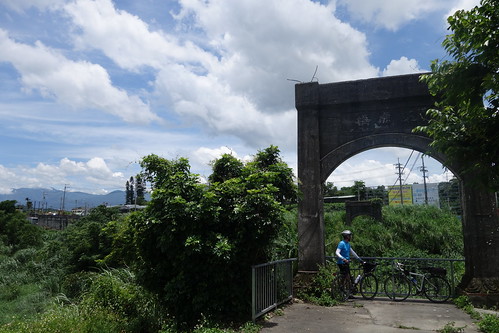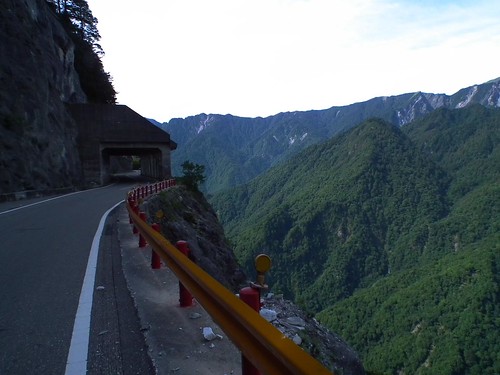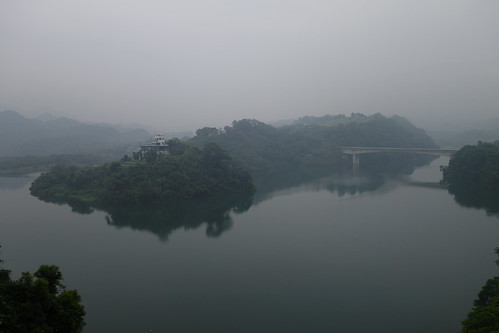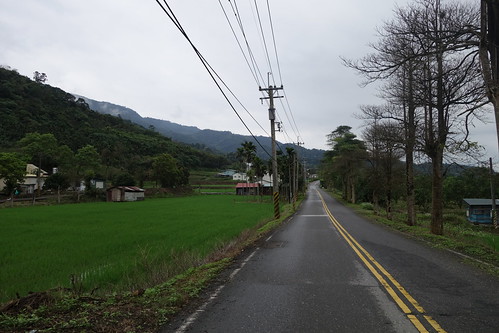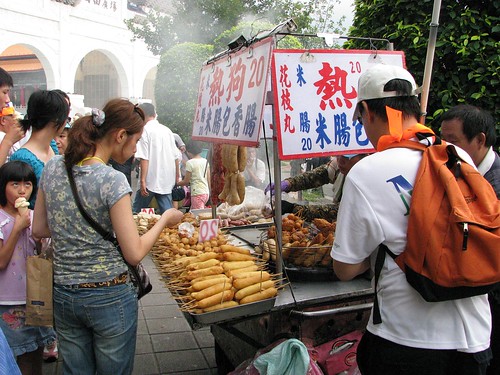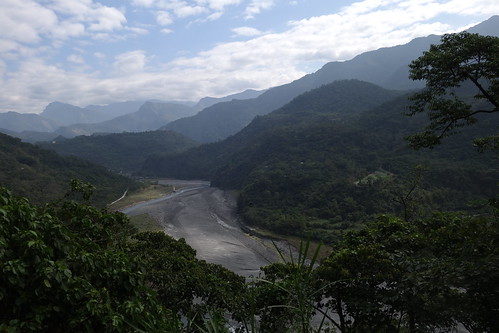Reuters called her a China-weary leader. So true. It also referred to her "Democratic People's Party". *sigh*
Lots of media commentary, but on Twitter, Eric Hundman summed it up nicely: it's all about Tsai's election, but every title contains the word
China...
Still, Jon Sullivan, Taiwan expert and media researcher at the U of Nottingham observed that the media reporting seemed to improve. I concur. Major media outlets such as NYTimes, AP, and WaPo all turned out good reports. Even BBC's report was very sympathetic. There's a lot more knowledge out there, reporters and editors are generally more cautious, more sensitive to their longtime failure to report on what the Taiwan side is thinking and less overtly pro-China, and there is now a stable of people for intelligent quotes about Taiwan. Things are getting better....
Strongly pro-China BBC can always be relied on to misreport. At least
the title didn't contain the word
China and some of it was sympathetic but this...
Ms Tsai's election win was only the second ever for the DPP - the Kuomintang (KMT) has been in power for most of the past 70 years
...well, there was that martial law thing for nearly 50 years. So basically, it's the second presidential win for the DPP since 1996. Another way to look at it is that all the
elected presidents of Taiwan have been pro-independence except Ma Ying-jeou.
Whilst some media orgs mentioned Tsai's outfit in fine sexist fashion, the Austin Ramzy of the NYTimes, who is always sensible, observed:
Ms. Tsai, who was elected by a large margin in January, is Taiwan’s first female president. A former law professor and trade negotiator, she won top office without the benefit of a politically powerful male relative, unlike most of Asia’s other female leaders.
it also added:
The foundations of cross-strait relations, she said, are the 1992 talks and the 20 years of negotiations that followed; the constitutional system of the Republic of China, Taiwan’s official name; and the island’s democratic principles.
“The two governing parties across the strait must set aside the baggage of history, and engage in positive dialogue, for the benefit of the people on both sides,” she said.
In a lengthy statement released Friday afternoon by Xinhua, China’s official news agency, the country’s Taiwan Affairs Office noted Ms. Tsai’s comments but said she did not go far enough. The statement said the “Taiwan authorities’ new leader” had “adopted a vague attitude, and didn’t clearly acknowledge the ’92 Consensus.”
It called her remarks “an incomplete examination paper.”
It is indicative of the importance of testing in the Confucian societies in East Asia that China officially reached for an exam paper metaphor. More interesting, as several commentators observed, is that China's response left room to say that Tsai had actually come partway. Folks, Beijing does not know what to do and it is floundering for a policy.
Note also that her speech referred to the ROC Constitution and Taiwan's democracy as the basis for cross-strait diplomacy. The Constitution nowhere explicitly says that Taiwan is part of China, while democracy says Taiwan is an independent states. The "twenty years of talks" are the real foundation. That comment is also a reminder that negotiations with China belong to the government, and not certain unelected political parties that think Taiwan belongs to them.
"Wearing a cream blazer with dark trousers..." (
AFP).
Laorencha blog had a good laugh at the silliness of major news organizations reporting on Tsai Ing-wen's clothing. As someone remarked on Twitter, does anyone report that Xi Jin-ping wears the same black suit on every occasion?
Reuters had several pieces on the election, but
this one was interesting for what it didn't say: here is its rendition of the 1992 Consensus:
Chiang Kai-shek’s Nationalists fled to Taiwan after losing the civil war to the Communists in China in 1949. China has pressured the new government to stick to the “one China” principle agreed with the Nationalists. That allows each side to interpret what “one China” means.
It didn't use the term "1992 Consensus" to describe the fake Consensus. Instead it represented what it is: One China which includes Taiwan. Nice work, Reuters.
Emily Rauhala wrote
an excellent report in WaPo. Unlike almost every other reporter and commenter on Taiwan, she sources a quote from a brilliant Taiwan scholar who points out that China must interact with Taiwan in order to annex it:
Chinese officials and academics have also warned, repeatedly if vaguely, of an economic toll should Tsai refuse to fall in line. While China could move to curb tourism or trade, some question how far it is willing to go. China sees Taiwan as an integral part of its territory and aims to “reunify.” As such, it has an interest in deepening, not destroying, ties to Taiwan’s business community, said Jean-Pierre Cabestan, a political scientist from Hong Kong’s Baptist University.
...and then follows it with a similar quote! Love how "reunify" is in quotes. Thanks for that, Ms. Rauhala.
The Guardian has quotes from Jon Sullivan and J Michael Cole in a decent piece, except for:
Officially, Beijing still hopes to reabsorb Taiwan, which has been self-ruled since 1949, and in the wake of Tsai’s victory Beijing has warned that she must explicitly state her commitment to the so-called “one China principle” – the idea that Taiwan and mainland China are a single nation.
Tsai made no such commitment in her speech, referring simply to a controversial 1992 “consensus” about the island’s status as a “historical fact”.
Tsai actually referred to the
talks, not
the Consensus, as a historical fact.
AP did a much better job:
While leaving Beijing unsatisfied, Tsai avoided provoking Beijing by referring to Taiwan as an independent sovereign nation, said Li Fei, deputy director of the Taiwan Research Institute at China's Xiamen University.
"This is a speech that can be accepted by the international community and endured by the mainland," Li said, adding that Beijing will be watching what Tsai does in coming days as she forms her administration.
Her speech left wiggle room for Beijing...
New Bloom mag had an informative and interesting
run down of the performance at the ceremony, which my man maddog described as trolling the KMT, including some discussion of the incredibly patronizing and stupid remarks the emcees made about aborigines and Hakkas.
Robert Ross, who told us a decade ago that the independence movement is "fading",
is still writing the same stuff he has been for more than a decade: Taiwan causes trouble, democracy is provocative, and other pro-China tropes. Sad. Hey Robert, that dead independence movement just put a female into the presidency. So many great people out there, why would anyone source from the consistently wrong Ross?
The US government weighed in:
U.S. Statement on Taiwan's Presidential Inauguration
Press Statement
John Kirby
Assistant Secretary and Department Spokesperson, Bureau of Public Affairs
Washington, DC
May 20, 2016
The United States congratulates President Tsai Ing-wen on her inauguration as Taiwan’s fourth democratically elected president. We also congratulate the Taiwan people on the occasion of this peaceful transition of power, which marks another milestone in the development of Taiwan’s vibrant democracy.
The United States commends President Ma Ying-jeou for his success in strengthening U.S.-Taiwan relations over the past eight years. We look forward to working with the new administration, as well as with all of Taiwan’s political parties and civil society groups, to further strengthen the ties between the people of the United States and Taiwan.
On Twitter Emily Chen informed that the U.S. House passed the military budget for 2017, with an amendment to grant TW observer status in RIMPAC
Beijing's response was in most articles.
Reuters forwarded Beijing's response:
Although Tsai, Taiwan’s first woman president, said Taiwan would play a responsible role and be a “staunch guardian of peace” with China in her speech yesterday, Chinese officials are pressuring the new government to explicitly endorse the so called “one China” principle which was agreed to with the Nationalist Party.
According to that principle, which China says was agreed to in 1992, both sides can interpret what “one China” means.
China’s Taiwan Affairs Office yesterday said Tsai’s remarks were an “incomplete answer” while an editorial published today in the People’s Daily, the official newspaper of China’s ruling Communist Party, said that “Taiwan’s new leadership must complete their currently incomplete response.”
No one ever points out that the meeting over the 1992 Consensus was conducted by the unelected representatives of two one-party governments.
Taiwan's WHA reps have arrived in Geneva, so if Beijing is going to toss them out, it will have to move fast...
WSJ collected some Chinese netizen remarks, predictably belligerent.
If you want the original Xinhua with the official Chinese statement, it is
here. Note its strong language on the 1992 Consensus:
"The 1992 Consensus explicitly sets out the fundamental nature of relations across the Taiwan Straits," the official said, stressing that it states that both the mainland and Taiwan belong to one and the same China and that cross-Straits relations are not state-to-state relations.
The 1992 Consensus was reached with explicit authorization of the two sides and has been affirmed by leaders of both sides. It thus constitutes the cornerstone of peaceful growth of cross-Straits relations, it reads.
It sounds like China is affirming the 1992C as the KMT describes it, but recall that for China there are not "two interpretations": One China = People's Republic of China. Hence, while the language is strong, it does not anywhere say "two interpretations -- that's purely a KMT thing -- and thus, the PRC's language is also the usual smack-talking. The 1992 Consensus is only about getting Tsai to use "one China" language -- the same crap the PRC directed at Chen Shui-bian -- same tune, different lyrics.
The constant flow of references to the 1992C in the media, almost always erroneously, shows how the international media helps construct, recapitulate, and enforce the 1992 Consensus on behalf of Beijing. Sad. The same is true of the constant reference to "tension". The dominance of pro-Beijing tropes in the global media is one of Beijing's most important forms of soft power...
Randall Schriver nailed it
in an interview prior to the swearing in:
RS: We need to keep the onus on Beijing as well. It’s very tempting for people to say “Tsai Ing-wen should do this or that,” or “will she say this or that on the ‘92 consensus?” But there’s only one party here that has missiles pointed at someone else. There’s only one party here that has an intransigent position on legacy issues. I think we need to give Tsai Ing-wen space, give her the opportunity to respond to people who have elected her and avoid validating China’s overreaction or pressure tactics. I think it’s really important that people in Washington understand that she is navigating something very delicate in Taiwan. Providing her reassurance, and allowing her time and space to do things that she needs to do will be really important.
_______________________
[Taiwan] Don't miss the comments below! And check out my blog and its sidebars for events, links to previous posts and picture posts, and scores of links to other Taiwan blogs and forums!
